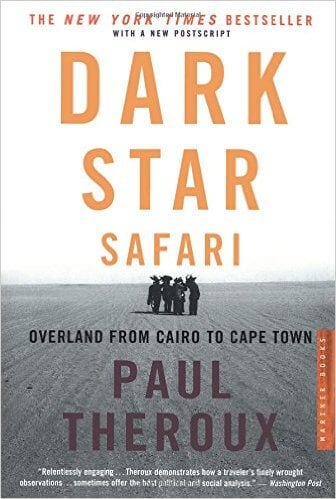Blood River by Tim Butcher Book Review

For me, the best travel books are more than just narratives that just tell how the author did A, then B, then C – they are books that use a real experience to help frame and understand larger issues surrounding the place they are traveling through.
Some of the best books I’ve ever read have been in the travel genre – Dark Star Safari by Paul Theroux gives a fascinating treatment of development in Africa; In A Sunburned Country by Bill Bryson will tell you more about the history of Australia than any history book; Lunatic Express by Carl Hoffman, Grounded by Seth Stevenson, and Lost on Planet China by J. Maarten Troost will give you better glimpse at globalization than many books on the topic itself.
The problem is that this type of book is nearly impossible to find. A good, page-turning non-fiction book is tough to find because you need an author who can not only do incredible research – but who can also wield a fabulous turn of phrase.
If you throw in the ability to travel, explore, ask questions, and weave that experience into the larger narrative and theme of the book…you have an entirely different task.
So I was very happy that Tim Butcher turned out to be just that sort of author. Here’s what Blood River is about and why I found it so fascinating.
Blood River is about Tim Butcher’s journey from Lake Tanganyika to the headwaters of The Congo and down to its mouth into The Atlantic Ocean. Nothing against Bill Bryson – but this travel book covers a journey across the most challenging and violent terrain in the world. Terrain that you simply do not cross.
The Congo has no challengers when it comes to the world’s most exploited, most ill-governed, most perpetually violent country in the world. From 1998 to 2003, the Second Congo War caused more than 5 million deaths, and had caused the country’s already backward development to go even farther into reverse.
The premise of Tim Butcher’s trip across The Congo was to retrace Henry Stanley’s original trip as the first white guy to cross Africa and to follow the entire Congo River to the ocean back in 1874. Henry Stanley’s journey kicked off The Congo’s colonial experience (ie, the Heart of Darkness) – which you can read more of in King Leopold’s Ghost by Adam Hochschild – and helped accelerate the Scramble for Africa.
Blood River is about retracing those steps to see how and why The Congo has come nearly full circle since 1874 (ie, standard of living being worse now than in 1874).
Most of the first portion of the book is about the historical setup and actually planning his trip to see if it is even possible. It was fascinating to learn about the extensive aid and UN network in The Congo, the connections among all the groups, they day to day survival, and the incredible contrast between the aid groups and peacekeeping work being done – and the sheer amount of work that needs to be done.
[Spoiler] The author is able to get a ride across Eastern Congo overland by various means to The Congo River. And it’s this portion that has my only complaint about the book. Basically, because he has to move so fast to keep from getting killed – there is no real time to explore the people and places that are somehow surviving in the bush of The Congo.
He’s able to stop and interview people in a couple villages, and some traders along the footpath about the state of the country in the bush, but most of his experiences happen in the cities where he’s forced to lay over while trying to hitch another ride.
For me, the book was a page turner, and put Africa’s problems in a much different perspective than they had been (very academic, a la my International Affairs classes in college). The guy takes adventure travel to a different extreme. He’s seriously near-suicidal/insane. And he can write a good book.
So – if you are interested in either insane travel, history of Africa, international development, The Congo specifically, or just want a really well-written travel book – you should pick Blood River by Tim Butcher up.





